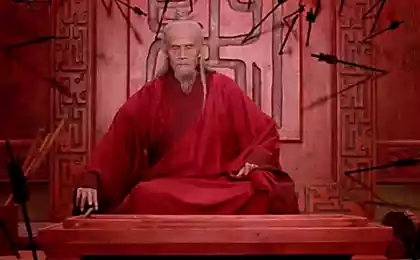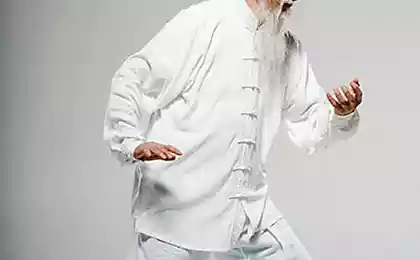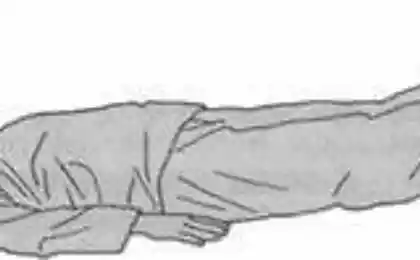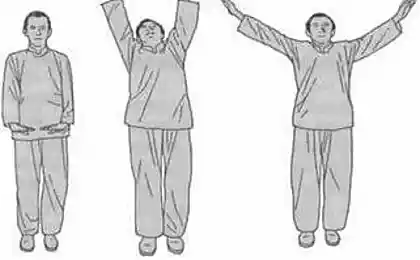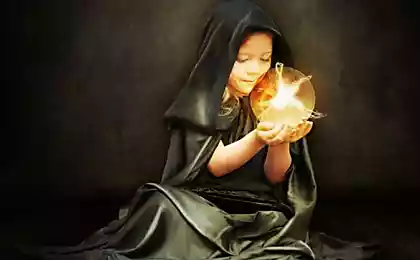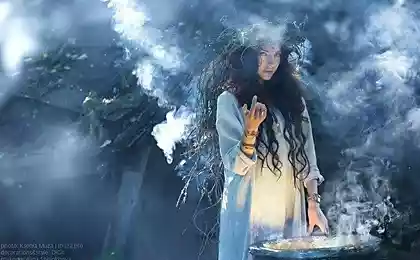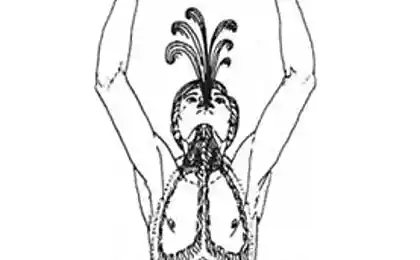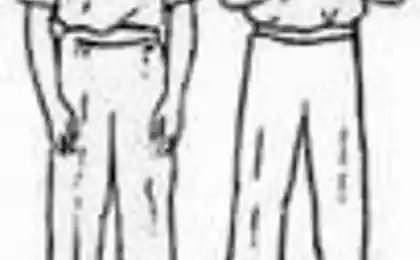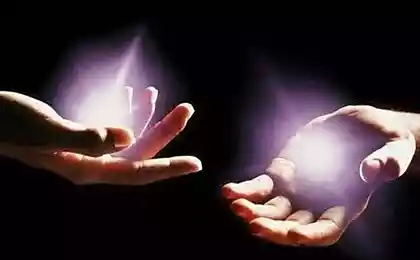516
Qigong: Qi As connected with blood
Someone asked
What is Qi and how it relates to blood?
The answer
Qi is the vital substance that underlies all that exists around. All phenomena occur due to movement and changes of Qi. The thinnest Qi is the spirit, the brute Qi is matter. Qi can be of different types and can have different qualities.
First of all, all the Qi is divided into Yin (Yin) and Yang Qi (Yang) Qi. These two types of Qi embody two opposing forces we can observe in the world: the Moon and the Sun, rest and movement, cold and warmth, darkness and light, etc. note that Qi is not just energy, it also carries information and therefore has some degree of independence, a special form of consciousness.
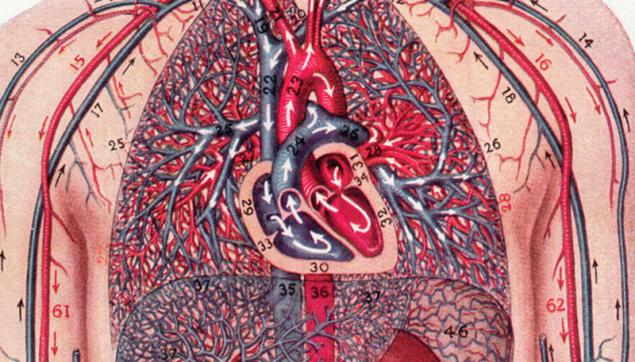
The human body, like everything else, consists of Qi. If the Qi in the body is sufficient — the person is healthy; if Qi is depleted, his body weakens and becomes sick. That's why Taoist exercises that allow you to work with Qi and spirit, can restore health and maintain it to the death in excellent condition, and the most profound practices can even make a person immortal.
Within us there are three main types of Qi:
The original Chi that was given to us from birth. When the Qi ends and the person dies.
The qi of water and grain — this Qi we get Qi transforming what we eat and drink.
External Qi, which we inhaled or absorbed directly from the surrounding space (this is the Qi of Heaven, Earth Qi and natural Qi).
All the processes that occur in our body, are caused by Qi. So as soon as there is stagnation of Qi, weak patency of energy channels, the accumulation of turbid Qi of the person begin to overcome the disease.
It is possible to allocate following basic functions of Qi in the human body:
Stimulation of the growth and development of Qi promotes the growth and development of the body and physical transformation processes in the internal organs and movement of fluids within the body. If Qi is small or it is weakening, the growth and development of the body slows down and the power and potential of internal organs and channels is falling.
Regulation of body temperature — if this function of Qi is disrupted, the person may feel cold or heat, which also affects blood pressure and the mobility of the limbs.
The protective function of Qi protects us from external shocks. The man has a protective field of Qi. It is formed from the Qi, which stands for the limit of small energy channels located throughout the body. Also if the person is ill, the internal Qi starts to fight against pathogenic Qi, constantly increasing its pressure until it is fully healed person.
The controlling function of Qi regulates blood flow, controls moderate secretions of sweat and urine. Controlling and stimulating the functions of Qi in relation to blood is that of Qi, on the one hand, is able to activate its movement, and can control the spread of blood through the body. The lack of Qi, leading to a weakening of the stimulating function may cause circulatory disturbances, until the occurrence of stagnation of the blood; lack of Qi, leading to the weakening of the regulatory functions can lead to uncontrolled bleeding.
Transformation function — it takes all sorts of transformations at the level of the physical body. If this function is weakened, it can disrupt metabolism, disorders occur in the internal organs, blood diseases, etc.
All five functions of Qi are closely intertwined and highlighted here only for a better understanding of the role of Qi in human life. Everything that happens in this world first occurs at the level of Qi, and then, sometimes after a long period of time, manifested in physical matter.
Between the blood and the Qi are intimately related. The accumulated Qi interacts with the eaten food in the spleen and stomach, and then the Qi enters the lung channel where it communicates with the Qi of the lungs, forming and nourishing the blood. The resulting blood flows along the channels with Qi.
Managing blood to the heart, keeping the blood in the liver, the connection of blood in the gallbladder — the circulation and transformation of Qi into a dense and hollow organs. The blood from the very beginning to the very end is inseparable from Qi. Qi can "produce blood", "move the blood", "control the blood", so I say: "Qi is the mentor of blood."
Qi promotes circulation of blood, and the blood contributes to the physiological activities of all the organs, nourish them, and they generate a new conversion internal Qi. That is why they say "blood is mother of Qi". Thus Qi generates blood, and then the blood helps to generate Qi is the basis of life of the physical body.
Blood and Qi is relying and using each other, constantly moving through the human body and influence many physiological processes. Therefore the ancients said that as soon as the Qi and blood stagnate — there is illness, and if the Qi and blood move freely diseases themselves are.
P. S. And remember, only by changing their consumption — together we change the world! ©
Source: zhendaopai.org/kak-tsi-svyazana-s-krovyu/
What is Qi and how it relates to blood?
The answer
Qi is the vital substance that underlies all that exists around. All phenomena occur due to movement and changes of Qi. The thinnest Qi is the spirit, the brute Qi is matter. Qi can be of different types and can have different qualities.
First of all, all the Qi is divided into Yin (Yin) and Yang Qi (Yang) Qi. These two types of Qi embody two opposing forces we can observe in the world: the Moon and the Sun, rest and movement, cold and warmth, darkness and light, etc. note that Qi is not just energy, it also carries information and therefore has some degree of independence, a special form of consciousness.

The human body, like everything else, consists of Qi. If the Qi in the body is sufficient — the person is healthy; if Qi is depleted, his body weakens and becomes sick. That's why Taoist exercises that allow you to work with Qi and spirit, can restore health and maintain it to the death in excellent condition, and the most profound practices can even make a person immortal.
Within us there are three main types of Qi:
The original Chi that was given to us from birth. When the Qi ends and the person dies.
The qi of water and grain — this Qi we get Qi transforming what we eat and drink.
External Qi, which we inhaled or absorbed directly from the surrounding space (this is the Qi of Heaven, Earth Qi and natural Qi).
All the processes that occur in our body, are caused by Qi. So as soon as there is stagnation of Qi, weak patency of energy channels, the accumulation of turbid Qi of the person begin to overcome the disease.
It is possible to allocate following basic functions of Qi in the human body:
Stimulation of the growth and development of Qi promotes the growth and development of the body and physical transformation processes in the internal organs and movement of fluids within the body. If Qi is small or it is weakening, the growth and development of the body slows down and the power and potential of internal organs and channels is falling.
Regulation of body temperature — if this function of Qi is disrupted, the person may feel cold or heat, which also affects blood pressure and the mobility of the limbs.
The protective function of Qi protects us from external shocks. The man has a protective field of Qi. It is formed from the Qi, which stands for the limit of small energy channels located throughout the body. Also if the person is ill, the internal Qi starts to fight against pathogenic Qi, constantly increasing its pressure until it is fully healed person.
The controlling function of Qi regulates blood flow, controls moderate secretions of sweat and urine. Controlling and stimulating the functions of Qi in relation to blood is that of Qi, on the one hand, is able to activate its movement, and can control the spread of blood through the body. The lack of Qi, leading to a weakening of the stimulating function may cause circulatory disturbances, until the occurrence of stagnation of the blood; lack of Qi, leading to the weakening of the regulatory functions can lead to uncontrolled bleeding.
Transformation function — it takes all sorts of transformations at the level of the physical body. If this function is weakened, it can disrupt metabolism, disorders occur in the internal organs, blood diseases, etc.
All five functions of Qi are closely intertwined and highlighted here only for a better understanding of the role of Qi in human life. Everything that happens in this world first occurs at the level of Qi, and then, sometimes after a long period of time, manifested in physical matter.
Between the blood and the Qi are intimately related. The accumulated Qi interacts with the eaten food in the spleen and stomach, and then the Qi enters the lung channel where it communicates with the Qi of the lungs, forming and nourishing the blood. The resulting blood flows along the channels with Qi.
Managing blood to the heart, keeping the blood in the liver, the connection of blood in the gallbladder — the circulation and transformation of Qi into a dense and hollow organs. The blood from the very beginning to the very end is inseparable from Qi. Qi can "produce blood", "move the blood", "control the blood", so I say: "Qi is the mentor of blood."
Qi promotes circulation of blood, and the blood contributes to the physiological activities of all the organs, nourish them, and they generate a new conversion internal Qi. That is why they say "blood is mother of Qi". Thus Qi generates blood, and then the blood helps to generate Qi is the basis of life of the physical body.
Blood and Qi is relying and using each other, constantly moving through the human body and influence many physiological processes. Therefore the ancients said that as soon as the Qi and blood stagnate — there is illness, and if the Qi and blood move freely diseases themselves are.
P. S. And remember, only by changing their consumption — together we change the world! ©
Source: zhendaopai.org/kak-tsi-svyazana-s-krovyu/
